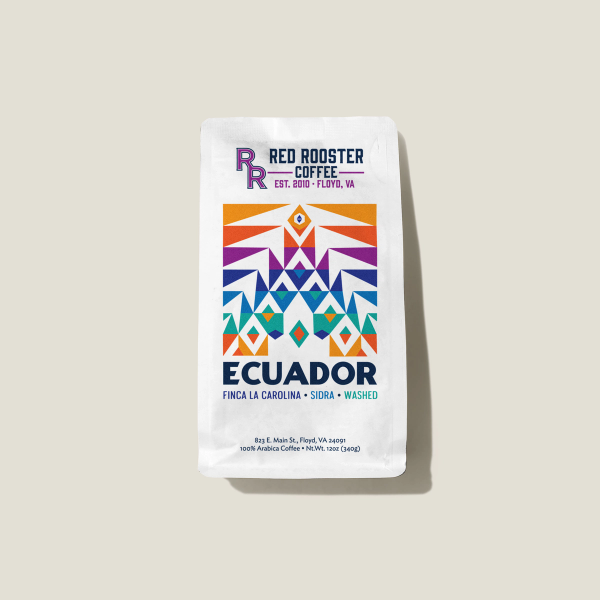Ecuador Finca La Carolina Sidra Washed
$30
This delicately delicious Sidra microlot was grown in the cloud forests of Pichincha, Ecuador. The rich volcanic soil and cool temperate climate of the Andean Plateau's northern highlands result in a sweet, well balanced cup with notes of creamy Dulce de Leche, apricot, and chamomile tea.
Tasting Notes
- Dulce de Leche
- Apricot
- Chamomile
Details
Origin
Pichincha, EcuadorProcess
WashedVarietals
SidraElevation
1300 maslProducer
Finca La CarolinaSourcing
Cafe ImportsGreen Cost
$8.31/lbC-Market Price
$3.82Kalita Wave

The flat bottom of this handy brewer is the key to making a consistently delicious cup, forcing water to reach all crevices of the ground coffee and developing a richer flavor along the way.
Sourcing & Processing
This microlot comes to us from Fausto Romo and his 6-hectare farm Finca Carolina in Pichincha, Ecuador. Part of the Ring of Fire, Ecuador sits on top of the equator and is bordered by the Pacific Ocean. The Andes mountains, including one of the world's highest active volcanoes (Cotopaxi), run the length of the country with the Amazon rainforest to the East. Ecuador’s stunning terrain, with its vast range of elevations, and rich volcanic soil create ideal microclimates for growing unique top quality coffees.
Pichincha, situated in the northern highlands of the Andean Plateau, is known for its cool weather, volcanoes, cloud forests, and specialty coffee. The average temperature is 65° and mist often covers the land in the afternoons. Coffee plants thrive in this climate and the cooler night temperatures slightly stress the cherries causing them to produce more sugars.
Sidra is an interesting varietal that, according to the non-profit organization World Coffee Research, may not have a clear genetic identity. It is believed to be native to Ecuador and is thought by some to be an "unreleased" experimental cross-breed (a mix of Typica and Bourbon) developed by Nestlé. However, more recent testing has shown samples of Sidra to be genetically similar to Ethiopian landrace varietals, sharing their sweet, fruity, and floral characteristics. This exclusive varietal is winning competitions world wide and becoming highly sought-after.
This microlot was carefully hand-harvested and processed on Finca La Carolina. After being sorted, the cherries were dry fermented for 16 hours, fully washed, and spread out to dry on raised beds. The beds are covered by hand-made structures to keep out the rain.
Want it sweet?
Treat yourself and try a syrup
Looking for a different kick?
See our range of teas


